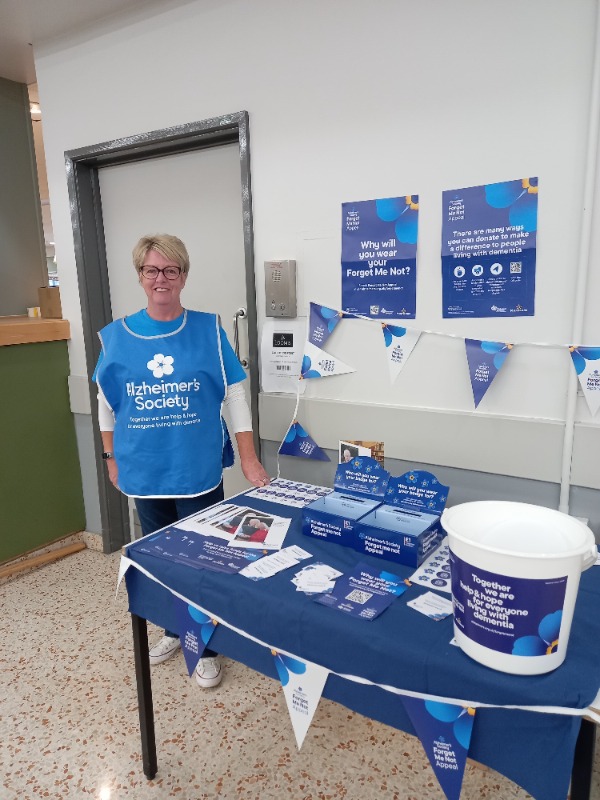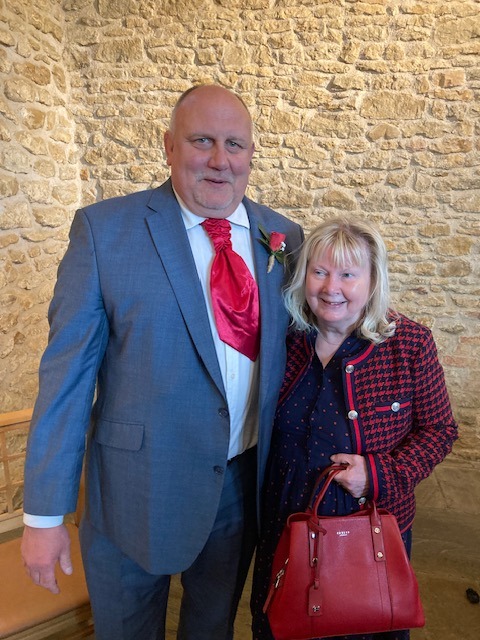search
date/time
 | Yorkshire Times A Voice of the Free Press |
12:00 AM 22nd September 2025
frontpage
'Left In The Dark': True Impact Of Dementia Is Laid Bare In A New Report

Image by Gerd Altmann from Pixabay
Of those who received support, fewer than half were satisfied with it, with only 29% saying dementia-related care was easy to access.
More than half believe this situation could be improved if increased support from professional carers trained in dementia was available.
Published for World Alzheimer’s Month, Alzheimer’s Society’s Lived Experience Survey captures the voices of people affected by dementia. The responses are made up of those living with the condition, unpaid carers, and loved ones.
In the charity’s largest ever survey of people living with and affected by dementia, the report exposes a system buckling under pressure and serious gaps in care, diagnosis, and public awareness - leaving too many families to cope alone.
Almost a million people are living with dementia in the UK, yet its scale and the day-to-day realities often remain hidden. These findings tell us that far too many people are going without the help they need – whether it’s support after a diagnosis, trained care professionals, or someone to turn to when things get hard.
As the UK’s leading dementia charity, we are committed to giving a voice to those who feel unheard, left in the dark and struggling to cope. This report provides the evidence we hope will galvanise society to solve the UK’s biggest health and care crisis.
The survey, conducted by Walnut Unlimited, lays bare some of the barriers to a diagnosis as just one third report that their experience of the diagnosis process was positive.
One in five people received no support after diagnosis
Less than half of those who did get help were satisfied with it
Only 29% saif dementia-related care was easy to access
52% faced long wait times for diagnosis
38% of unpaid carers don’t feel respected by social care professionals – rising to 60% among carers from ethnically diverse backgrounds
Over one third of carers report a decline in mental health, and nearly a quarter feel socially isolated
The report highlights that the stigma surrounding dementia could be preventing people from accessing support, as two in five people living with dementia feel ashamed or stigmatised. As a result, many have not sought a diagnosis because of concerns about what their families and friends will say if they are diagnosed with the condition.
Experiences vary widely, but some groups face particular challenges. Among unpaid carers, 38% said they don’t feel respected by social care professionals – a figure that rises to 60% among carers from ethnically diverse backgrounds.
Alzheimer’s Society will use the findings to inspire governments, local authorities, communities and the public to take action. The charity is also encouraging people to find out more about its Dementia Friends programme, the biggest ever initiative to change people’s perceptions of the condition and reduce stigma.
It’s shocking just how many people still feel isolated and helpless, receiving little support from the social care system.
I can absolutely relate, and I encourage anyone who feels the same to join the fight. We must make dementia a priority, for everyone affected by the condition – those living with it, and their families, friends and carers.
“For decades dementia has suffered from a lack of attention and investment. It’s been seen as too complex, too expensive, and too hopeless. We’re leading the way by providing the evidence and delivering support to those who need it, but it will take a society to beat dementia.
“Alzheimer’s Society brings together carers, researchers, volunteers, fundraisers, politicians, Dementia Advisers, and support staff. We all have a role to play in ending the devastation dementia causes.”

Sue Girvan
When Sue Girvan, a busy Facilities Assistant from Huyton in Merseyside, was diagnosed with young onset dementia in her early 60s, she says she was fortunate in some ways to get her diagnosis but agrees that more expert help afterwards would have made things much easier; “It was a shock but I was able to start on medication to delay my symptoms. I carried on working for a while but it got to be too much for me. I found the open plan office environment very noisy and distracting and was able to leave work on medical grounds. As I wasn’t yet at retirement age, it was also a financial shock. I applied for PIP and was rejected twice but was then awarded it after going to a tribunal – that process took 17 months.”
“It’s a lot to go through and it doesn’t really surprise me that Alzheimer’s Society have found that one in five people have received no health care, social care or financial support, which is shocking really. I was lucky to have good admin skills because of my job and help from some good friends in working my way through it all, but lots of people don’t have that support.”
Sue now focuses on making the most of each day, with her friends and family and dog, Dexter.
“I keep myself busy and try to go out every day. I’ve also made arrangements for the future by sorting out Power of Attorney and moving to a more manageable bungalow. I go to Alzheimer’s Society groups and those sorts of social and support opportunities are vital so I can stay independent and well for as long as possible.”

Steve and Leigh Howe at a family wedding
Steve Howe from Darlington recalls that his wife, Leigh, who has Alzheimer’s disease, first started experiencing symptoms with her eyesight in her late fifties. In the years that it took to eventually receive a diagnosis, her condition deteriorated and Steve eventually had to give up work to care for Leigh at home.
He said; “Most unpaid carers who look after a loved one don’t get much, if any, respite. It’s often a 24/7 job. It’s difficult for me to get out much even to perform simple errands since Leigh cannot be left alone. Due to Leigh's blindness caused by Alzheimer's disease, she can no longer read or watch TV, or move about the house unaided and therefore needs to have someone with her pretty much all of the time.”
Steve thinks that society in general needs to become much more attuned to the needs of people with dementia, and their carers; “People aren’t always very understanding when you do go out. We’ve been very lucky though with the great people at our local golf club, and also at our local pub, where most visits someone (whether we know them or not) will always offer Leigh a seat and make us welcome. It would be wonderful if different strands of society could work together to really address the huge challenge of dementia.”
Warren Berman, from Leeds, is 72 and has Frontotemporal Dementia. Warren agrees that people need more support, particularly in the period after their diagnosis. He said; “After I was diagnosed my symptoms did make sense. I wasn’t worried or anxious at all and tried to keep busy, but then 4-5 weeks later my depression set in, though it then subsided. My reaction to the diagnosis had been delayed. I was referred to Alzheimer’s Society through a Memory Support worker who works for Alzheimer’s Society and for the Leeds Hospital trust.”
Warren is involved in several projects for people with dementia, including Up and Go – a group that’s part of the Dementia Engagement and Empowerment Project (DEEP) network and which aims to help make Leeds more dementia friendly. “I’ve received help from various services, and I’d like to put something back in for people with dementia – to help improve their lives a little bit.”